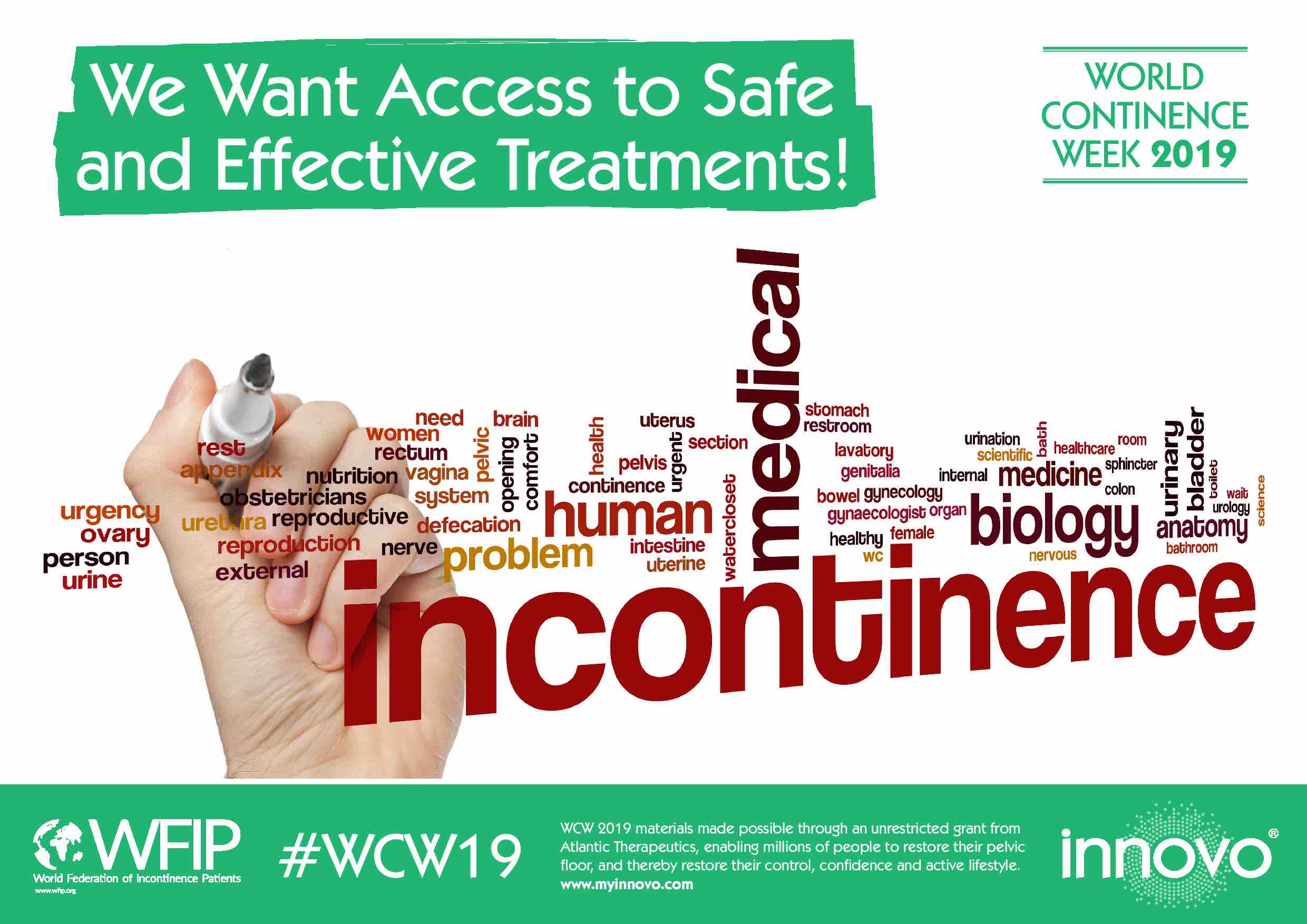Incontinence. It’s more common than you think.

June 17-23 is World Continence Week 2019.
This year there are two things in particular that I wanted to highlight:
- New data has just been released by the Continence Foundation of Australia (CFA) revealing incontinence actually affects more Australians than previously thought.
- People with incontinence want safe and effective treatments.
On the eve of World Continence Week, the CFA has released new data showing more than 1 in 3 adult Australians are affected by incontinence – up from the 1 in 4 previously stated. In fact, 38% of Australians will experience loss of bladder or bowel control at some point. This is quite a scary figure... especially if you are a woman, as 74% of those living with incontinence are women!
When looking at the figures further they show:
- One in 3 women who have had a baby experience incontinence
- Half of all people living with incontinence are 40-59 years old
- Only 38% of people with incontinence seek help – meaning 62% do not seek help!
Why is it that so many people living with incontinence do not seek help?
It’s very likely a combination of things.
- Many people are embarrassed to tell anyone about their problem
- Many people think incontinence is normal - 63% of people still think incontinence is inevitable after having a baby, and 48% of people believe incontinence is a normal part of ageing.
- Some people may be unaware or scared about what treatment may involve.
After the recent negative publicity surrounding some forms of gynaecological surgery, it is understandable that some people feel scared or uncertain about seeking treatment for their incontinence. The fact is that there are safe and effective treatments available for incontinence.
If we just look at Stress Urinary Incontinence (SUI) - the leakage you get from coughing, sneezing, laughing or exercise - there is very good evidence that conservative treatment can help.
- Pelvic floor exercises can cure just over 50% of all women with SUI
- Pelvic floor muscle exercises can cure or improve 72% of women with SUI
Although good surgical options exist, given that over half of all women with SUI can find pelvic floor training just as effective, it is recommended that conservative treatment is the way to start, as there are no risks involved.
The most important thing with pelvic floor training is to make sure you are doing your exercises correctly – otherwise they are just not going to work! Also, many studies show that the more supervision you have, the better your chances of cure or improvement from pelvic floor training. That’s why it’s recommended you see a Women’s Health Physio to make sure you are doing your exercises correctly and to guide you with exercise progression.
If you don’t know what to expect when you see a Women’s Health Physio, you can read the article I wrote for the CFA which outlines what this involves.
I would encourage you to seek help if you or someone you know experiences incontinence. Don’t be one of the statistics – you CAN do something about it.
For more information, please contact me at Life Cycle Physiotherapy.
